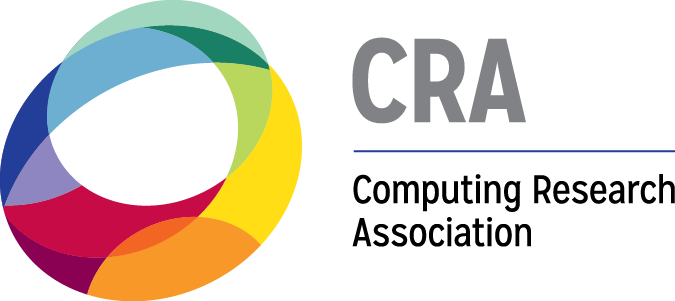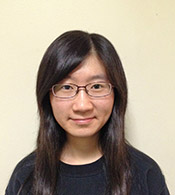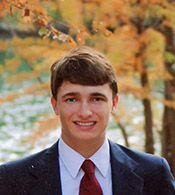CRA Recognizes Harvey Mudd Computer Scientists
January 7, 2016
Harvey Mudd College students Anna Ma ’17 and Alex Putman ’16 were selected as finalists from non-PhD-granting institutions for the Computing Research Association’s Outstanding Undergraduate Researcher Awards for 2015.
Sponsored this year by Mitsubishi Electric Research Labs, the prestigious program recognizes undergraduates at North American universities who demonstrate outstanding potential in an area of computing research.
Anna Ma
Anna Ma received the Runner-Up designation for her computational biology research conducted with Professor of Computer Science Ran Libeskind-Hadas.
Ma’s team researched phylogenetic tree reconciliation algorithms to enable the reconstruction of evolutionary histories of co-evolving species. Her results include an NP-Completeness proof and a fast approximation algorithm for a tree reconciliation problem, as well as implemented demonstrations of the algorithm’s efficiency.
“It is widely understood that many biological entities evolve in tandem,” says Ma. “While the concept of co-evolution can be traced back to Charles Darwin, modern computational methods are needed to infer the evolutionary histories of such pairs. In particular, phylogenetic tree reconciliation is an important technique for reconstructing evolutionary histories of species and genes and other dependent entities.”

Anna Ma ’17
Ma’s work focused on developing efficient algorithms for this technique and proving their correctness, making important theoretical contributions that were implemented by her summer teammates in a tool called DTL-RnB. Her work also resulted in the paper “DTL-RnB: Algorithms and Tools for Summarizing the Space of DTL Reconciliations,” accepted to appear in the IEEE/ACM Transactions on Computational Biology and Bioinformatics special issue for The Fourteenth Asia Pacific Bioinformatics Conference 2016. Ma is first author on the paper and is working on a related follow-up project.
A joint major in computer science and mathematics, Ma is also a highly regarded pianist whose recent public performances include Mozart and Beethoven piano sonatas.
“I am very honored and excited to be selected as the runner-up for this award,” says Ma, who plans to pursue a PhD in theoretical computer science after graduation. “I want to thank my teammates—Dima, Annalise, Juliet, Srinidhi and Carter—for their hard work and for the many helpful discussions and fun that we had together. I also want to thank Prof. Ran for his guidance and support.”
Alex Putman
Alex Putman received the Honorable Mention designation for computation improvisation research on Professor of Computer Science Bob Keller’s Impro-Visor program.
Impro-Visor helps musicians learn how to improvise jazz music, allowing them to generate new improvisations based on previous works of many famous jazz artists. Keller sought a way to make the program language more user-friendly, posing the problem to Putman and consulting with him on jazz music theory.
“[The program] was quite extensive, but I felt that it was lacking a way for students to understand the transition between seeing a simple line and creating unique improvisations on top of it, which is how improvisation is usually done,” says Putman. “I wanted to create a computational way for students to learn improvisation by understanding this transition that also agrees with current jazz improvisation theory.”
Since improvisation isn’t usually generated on its own, but generally created on top of an existing line, Putman decided that the program should take in a plain, simple musical line and output a unique complicated solo. Students then would be able to compare the two to understand how the solo was made, or “thought of.” The team based the research of this transition off of Shelton Berg’s theory that much of jazz improvisation is based on the use of common jazz idioms.
“As we wanted to transform the simple line with these jazz idioms, our research was defining these idioms in a grammar that a person and a computer could easily understand and defining how the grammar would be able to transform a line of music,” he says.
Their research paper was accepted to The 1st International Conference on New Musical Concept, and both Keller and Putman attended the conference in Treviso, Italy, in March 2015, where Putman presented the research.

Alex Putman ’16
Putman, who holds a strong interest in big data and machine learning, has accepted a post-graduation position at Microsoft, where he will work on data analytics and data mining. On the musical side, Putman currently plays oboe in the Pomona College Orchestra.
“I am very honored to receive this award,” he says. “I wouldn’t have been able to achieve it without the help from Prof. Keller and all of my other professors at Mudd. I want to thank them so much for nominating me.”
